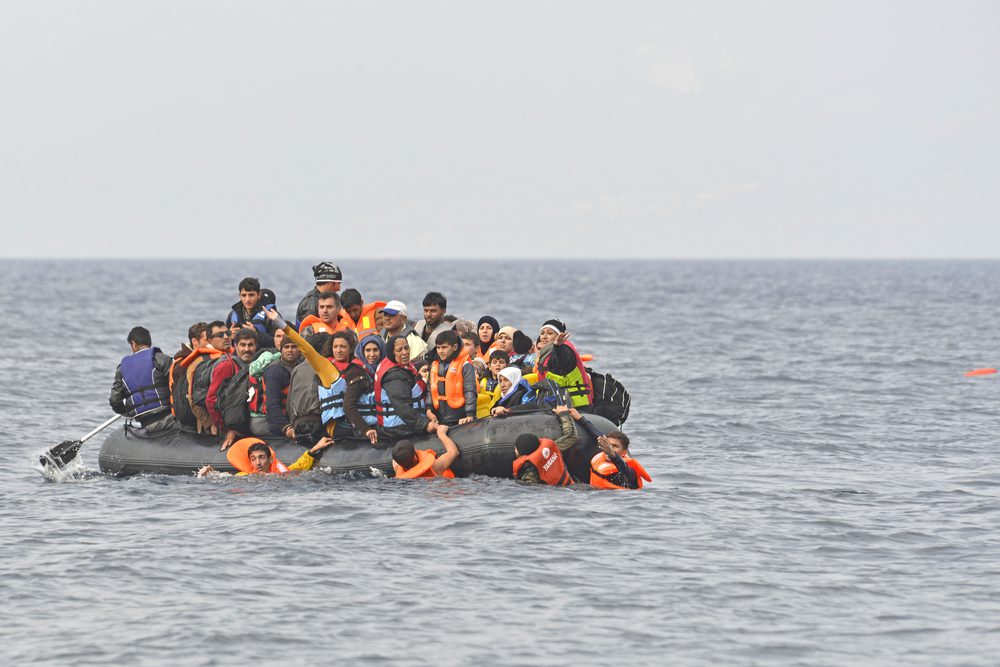
France is intercepting fewer migrants trying to cross the Channel to Britain than last year, despite the nearly half a billion pounds worth of funding the UK now provides to boost the numbers, The Telegraph revealed on Thursday, August 17th.
According to the freshly published official figures, the French border patrols stopped only 13,700 (45.2%) illegal migrants since January—down from 17,000 (then 45.8%) over the same period last year. So even though the number of overall crossing attempts decreased this year, the share of people turned away should not have, especially since the giant funding deal the UK brokered with France came into effect.
As a key part of Prime Minister Sunak’s pledge to “stop the boats,” the March deal involves paying £480 million (€560 million) over three years to double the number of border control officers patrolling the beaches (up to 800 agents), as well as establishing joint command and detention centres. On the other hand, Paris refused the idea of joint patrols with the Brits—granting only observer status for Border Force agents—nor did it agree to turn back boats once they had been launched.
The British government was counting on the French deal to work, especially since Brussels categorically ruled out any prospect of readmission in the Dublin agreement for London, which would have allowed the repatriation of migrants to the first EU countries they entered. According to statistics, over a hundred thousand illegal migrants have arrived in the UK solely by crossing the Channel since 2018.
Reacting to the new figures, obtained by The Telegraph from the French authorities, conservative politicians were outraged and called for an in-depth investigation into how British taxpayers’ money was actually spent. Migration’s economic cost is an increasingly pressing issue in the UK, where it was recently revealed that the country spends £6 million a day to house asylum-seekers, which according to official estimates, might go up to £30 million (€35 million) a day in a few years.
“These figures are very disappointing given the huge investment of resources funded by the British taxpayer, which we have been assured has led to enhanced patrols and therefore much better interception rates,” Tim Loughton, a former minister and member of the home affairs committee said. “Clearly we are paying more money for the French police to continue failing to stop even more migrants on the beaches before they get into the water.”
According to the Tory MP Natalie Elphicke, one can understand if the French forces are overwhelmed, given the internal disorder in the country. “That’s why the French authorities should agree to joint patrols—so when they are overstretched and cannot cope, we can make sure that the border is manned,” she stressed, adding that:
It’s important to remember that stopping the boats—and the brazen criminality that goes with them—is in the interests of both the UK and France. That’s why we all need to work together to bring this crisis to an end.
But the French insist on their policy (that they won’t intervene once the boats are on the water), unless the migrants are in distress and are likely to cooperate. The vast majority aren’t, however, which led to this policy in the first place, as the authorities try to minimise the chance of triggering any scandalous incident while also trying to detain uncooperative people at sea.
Instead, French patrols adopted a tactic of slashing inflatable boats on the shore if they encountered them. But, as the British complain, the migrants are not detained but left on the beach, looking for a new opportunity. What’s more, human smugglers have been recently “saturating” the coastline by launching simultaneous crossings (of boats averaging 50 people) all the way between Dunkirk and Boulogne, thereby stretching authorities even thinner.
The British Home Office also reacted to the figures, stating that “the unacceptable number of people risking their lives by making these dangerous crossings is placing an unprecedented strain on our asylum system.” The spokesman said the priority was stopping the boats and disrupting smuggling networks, but
The Government is going even further through our Illegal Migration Act, which will mean that people arriving in the UK illegally are detained and promptly removed to their country of origin or a safe third country.
